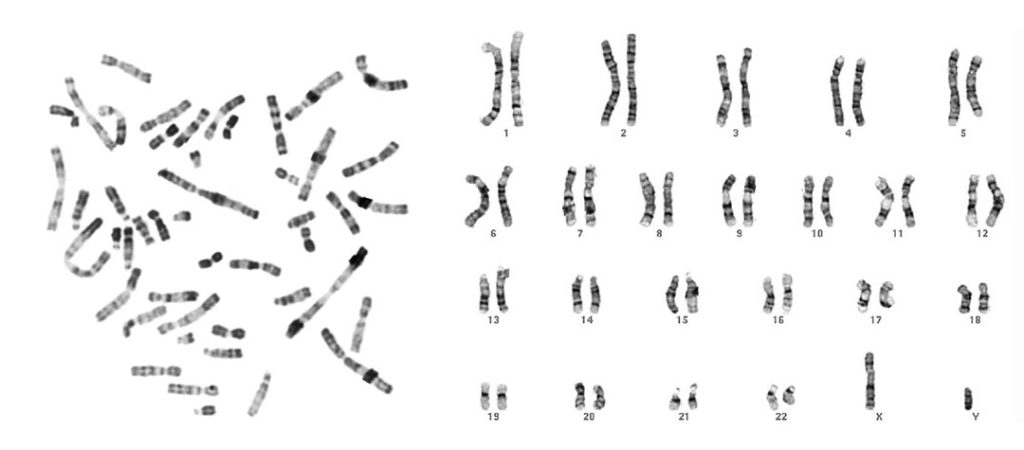Chromosome Analysis (Karyotype) Test
The Chromosome Analysis (Karyotype) Test involves examining the number, shape, and size of chromosomes. In a healthy individual, body cells contain 46 chromosomes. However, reproductive cells—sperm and egg—each contain 23 chromosomes. Upon fertilization, these cells combine to form a normal embryo with 46 chromosomes. If there is an abnormality in the number or structure of chromosomes, it can lead to chromosomal disorders.

Karyotype Analysis is recommended in the following situations:
- Couples experiencing recurrent pregnancy loss
- Couples with repeated unsuccessful IVF attempts
- Severe male infertility cases
- High-risk findings in prenatal screening during pregnancy
- Premature ovarian failure
By performing Karyotype Analysis in these cases, we can identify potential chromosomal abnormalities that may be contributing to these conditions, allowing for more informed decisions and tailored treatment approaches.